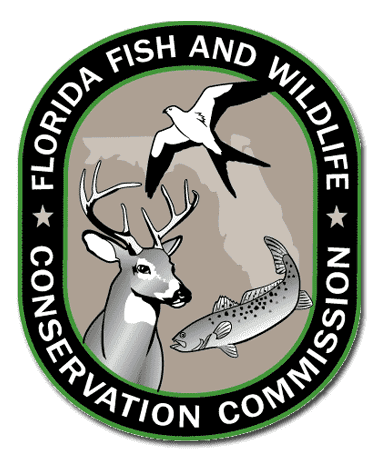Florida’s Black Bass Management Plan Off to Great Start

The Florida Fish and Wildlife Conservation Commission (FWC) is proud to announce that its year-old Black Bass Management Plan is producing remarkable results.
Implementation of the plan last summer was expected to create significant ecological, economic and social benefits for Florida. More than 7,500 anglers provided input, as did a technical assistance group representing fishing-related businesses, university experts, professional anglers, outdoor media and fishing guides.
The goal of the plan is to ensure Florida is the Black Bass Fishing Capital of the World by:
- Ensuring healthy lakes and rivers to benefit many species of fish and wildlife, as well as trophy bass fisheries.
- Strengthening local economies by documenting and increasing economic benefits derived from bass fishing, which already provides more than 14 million days of quality outdoor recreation for bass anglers and generates an economic impact of $1.25 billion.
- Attracting events such as national professional bass fishing tournaments, which have huge economic impacts, to smaller towns and cities as a result of Florida’s enhanced reputation.
So, how much progress was made to fulfill the goals of the BBMP during the first year? Here is a partial list of accomplishments. (Also available at MyFWC.com/Fishing; click the Black Bass Management Plan banner, then look for “First-Year Updates.”)
Bass genetics – The FWC stopped state-owned hatcheries from stocking or relocating bass outside their native range. Genetic testing will help ensure pure Florida populations will be maintained.
Hydrilla management – The FWC Invasive Plant Management Section implemented an agency position statement to guide the agency in managing hydrilla using a risk-based approach that now incorporates public input into hydrilla management plans.
Bass tournaments – Tournament permits annually allow clubs and organizations to possess bass outside legal size limits with the condition that all bass (even those that could normally be harvested) must be released. The FWC is strengthening partnerships with bass fishing organizations and local communities to encourage large tournaments to come to Florida and to enhance facilities.
Lake Okeechobee – Another objective was to work cooperatively with other agencies to emphasize recreational fisheries. An example is Lake Okeechobee, where the cooperative efforts of local citizens groups, the South Florida Water Management District, the U.S. Army Corps of Engineers and the FWC got the Water Regulation Schedule changed to benefit lake ecology. Outstanding catch rates for bass and crappie are being reported.
Fisheries regulations – FWC biologists are seeking to use the least restrictive regulations possible to protect trophy bass, while maintaining a statewide bass fishery that provides diverse angling opportunities, including controlled harvest and high angler satisfaction. University of Florida human dimensions experts are working to enhance the public input process.
Shoal bass – The BBMP incorporates all five black bass species found in Florida. Shoal bass are a lesser known species that occur in a limited range in the upper Chipola River. Recent research provides a science-informed perspective to assess and manage this species. Results show a robust population of shoal bass.
Lake Apopka – To expedite restoration of Lake Apopka, the Florida Legislature appropriated $4.8 million this year. A multi-agency task force identified five projects to restore this valuable fishery. In the interim, the FWC continues to stock the lake with non-reproducing sunshine bass to provide a recreational fishery.
Bass stocking – Stocking bass is an effective tool to create new fisheries and to re-establish a fishery after a major fish kill. FWC hatchery staff developed a new production technique to spawn bass out of season, so advanced-fingerlings (4-inch) are ready to stock when more abundant prey are available. Now FWC biologists are conducting a small-lake stocking study to determine survival of advanced-fingerling bass in 11 lakes throughout Florida.
Trophy tagging study – FWC biologists tagged 136 trophy largemouth bass greater than 8 pounds in Florida’s public waters, and as reported last month in the Fish Busters’ Bulletin, results are very informative and will help guide trophy bass management planning in the future.
TrophyCatch – Providing greater opportunities for trophy-size bass and promoting Florida’s exceptional largemouth fishery was an important component of the BBMP. TrophyCatch (TrophyCatchFlorida.com), which launches in October, will help document that Florida is the “Bass Fishing Capital of the World,” while promoting catch-and-release of trophy bass. Register, legally catch an 8-pound-plus bass, document it according to the rules, and release it in Florida to claim great rewards and valuable prizes.
Fellsmere Water Management Area – The Fellsmere project is an example of a new opportunity. This 10,000-acre parcel of land in Indian River County was purchased by the St. Johns River Water Management District and is being converted into a reservoir. The FWC provided resources to enhance fish and wildlife habitat and to benefit fish and wildlife populations, anglers and wildlife viewers.
High school bass fishing – An example of current efforts to help recruit future anglers is FWC involvement in laying the groundwork to incorporate bass fishing as a sanctioned sport in high schools.
E-Tournaments – Biologists evaluated an alternative weigh-in procedure to reduce handling stress on bass. Two experimental E-tournaments were evaluated. Fish were weighed or measured on the boat, photographed and then released. E-tournaments are a good choice for bass anglers wanting to hold tournaments during summer or on waters where bass cannot be legally kept. However, no plans to require such tournaments are currently contemplated.
The FWC will continue to update you as we strive to implement the BBMP and use TrophyCatch and other research methods to evaluate our success.

